The multilingual expat family blog: raising multilingual children internationally. We focus on Portuguese, German, and English, as well as general bilingual or multilingual learning, activities, and best practices. ♡
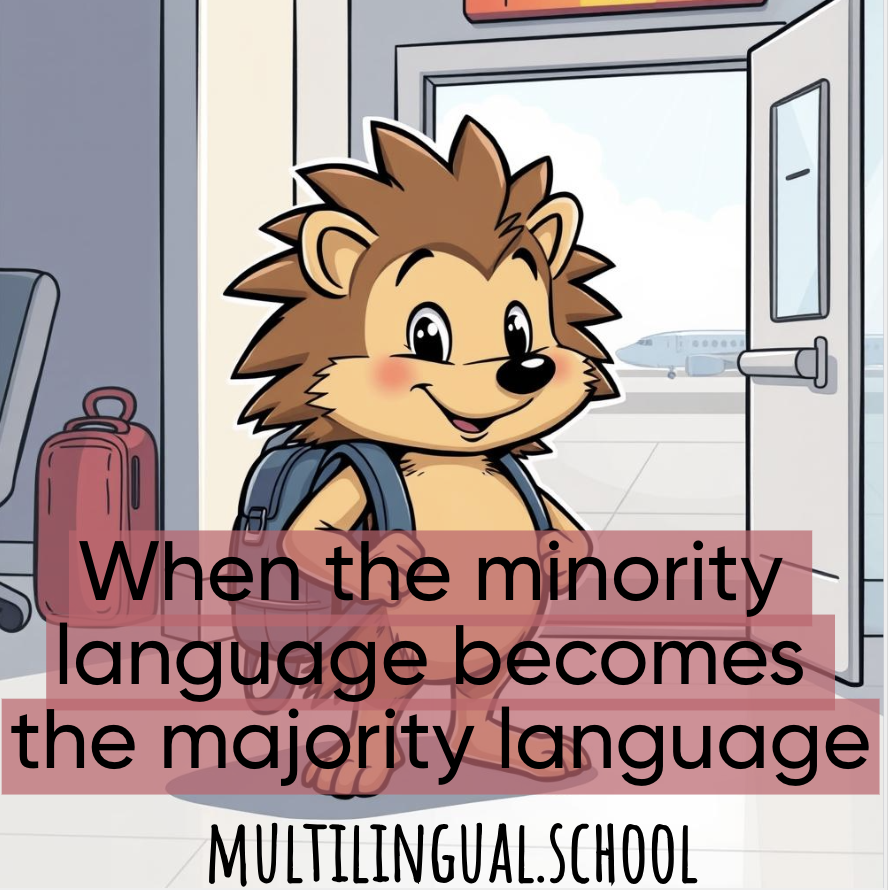
When the minority language becomes the majority language - travelling observations
Recently, we travelled to Brazil to meet the larger family. It was a successful trip overall, but I was mostly impressed with what impact it had on our son’s language development. Here are some observations about what will happen when you travel to your home language country.

The Benefits of Multilingual Pen Pals for Children
In a world that feels both vast and interconnected, there’s something timelessly magical about a child receiving a letter from a friend across the globe. For multilingual families, this magic takes on an even deeper significance when the letter arrives in a heritage language, sparking not just excitement but a profound connection to language and culture.
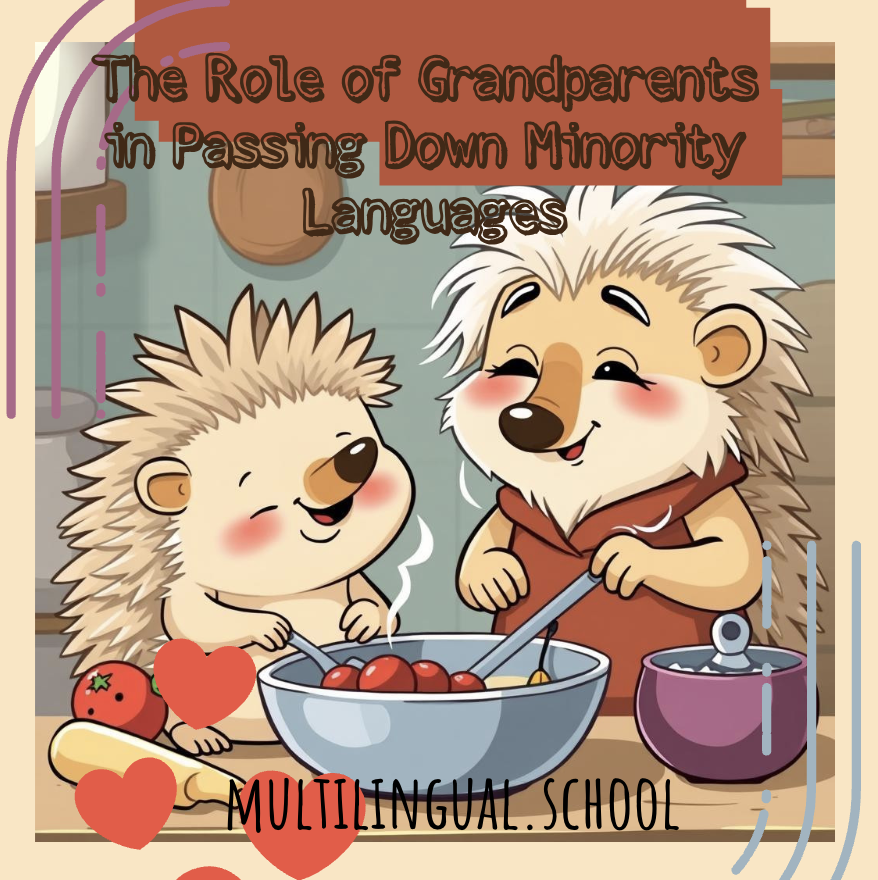
The Role of Grandparents in Passing Down Minority Languages
In the tapestry of a multilingual family, grandparents are the golden threads, weaving together language, culture, and heritage with a warmth that only they can provide. For children growing up in multilingual households, especially those balancing a minority language against a dominant one, grandparents are more than just storytellers or caregivers—they are living bridges to a family’s roots.

Navigating Language Resistance: Encouraging Kids to Embrace Their Heritage Language
One of the most common challenges for multilingual families is when kids resist speaking their heritage or minority language. If this sounds familiar, you’re not alone! Language resistance is a natural part of the multilingual journey, and with the right strategies, you can turn it into an opportunity to foster pride and connection.
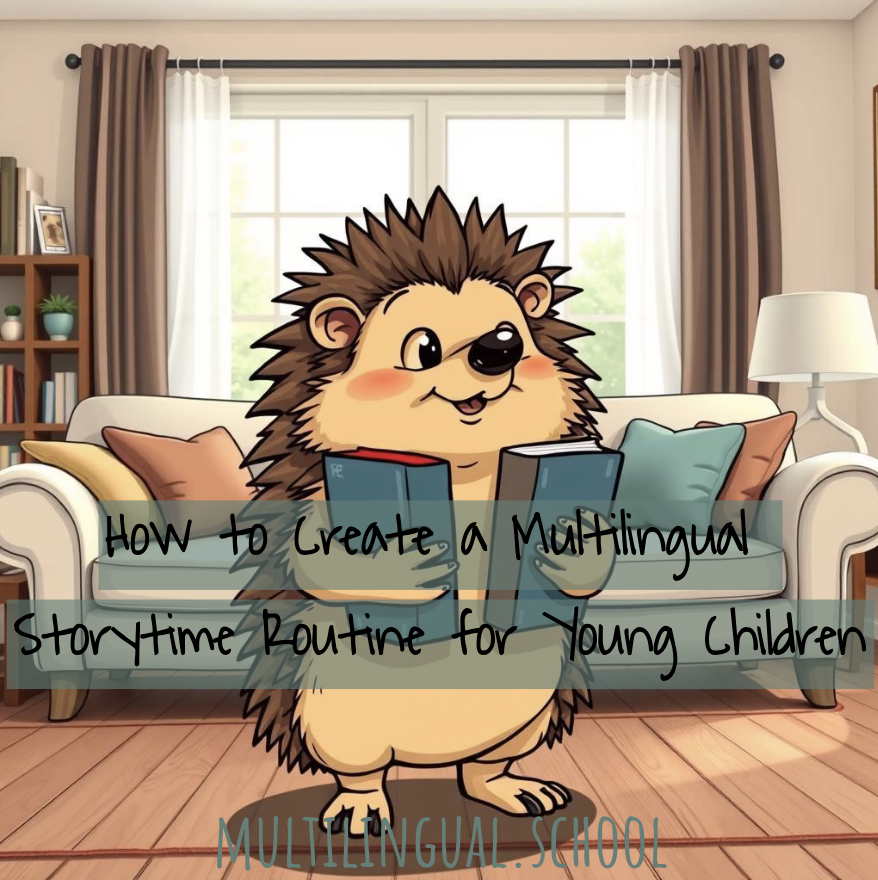
How to Create a Multilingual Storytime Routine for Young Children
Storytime is a magical moment in any child’s day—a chance to cuddle up, dive into imaginative worlds, and bond as a family. For multilingual families, it’s also a golden opportunity to nurture language skills and cultural connections. Whether you’re raising bilingual kids or balancing multiple heritage languages, a well-crafted multilingual storytime routine can make language learning feel like an adventure rather than a lesson.
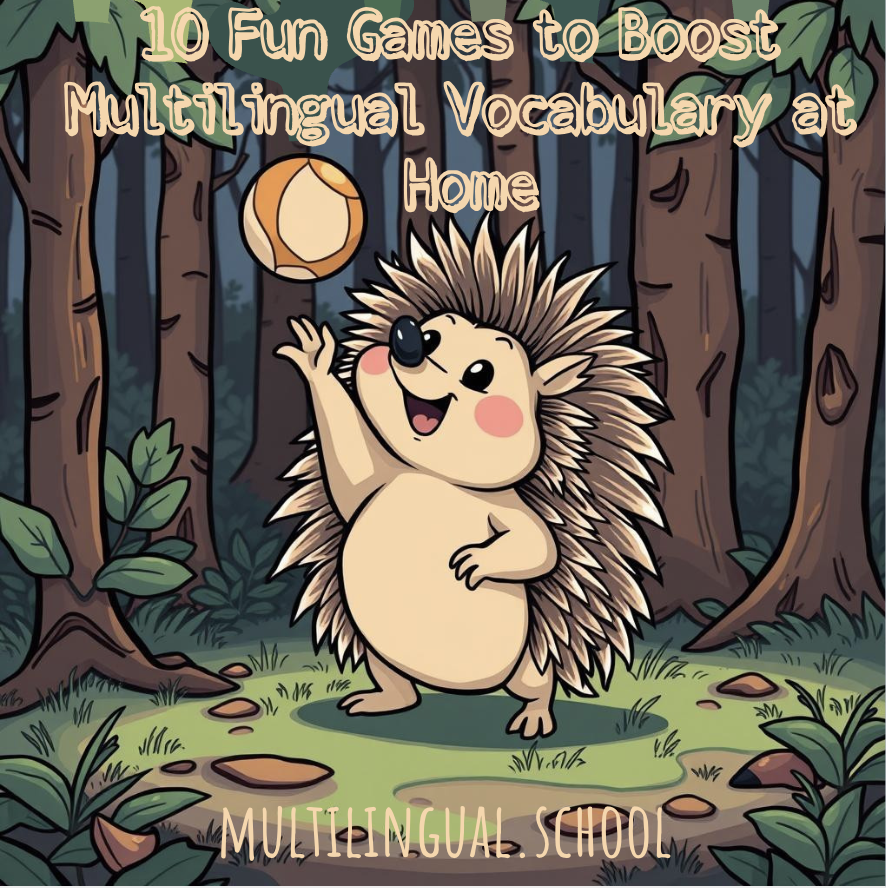
10 Fun Games to Boost Multilingual Vocabulary at Home
Games are a fantastic tool to spark joy and curiosity while building vocabulary in multiple languages. Here, we share 10 fun games that turn language learning into a delightful adventure for kids (and parents too!).

Children’s books to read about emotional awareness
One of these topics is the emotional awareness, understanding feelings in your boding and learning how to cope in moments of overwhelm. I’d like to share we you the books we’ve been looking at so far, and that helped us keep the conversation about big emotions going.
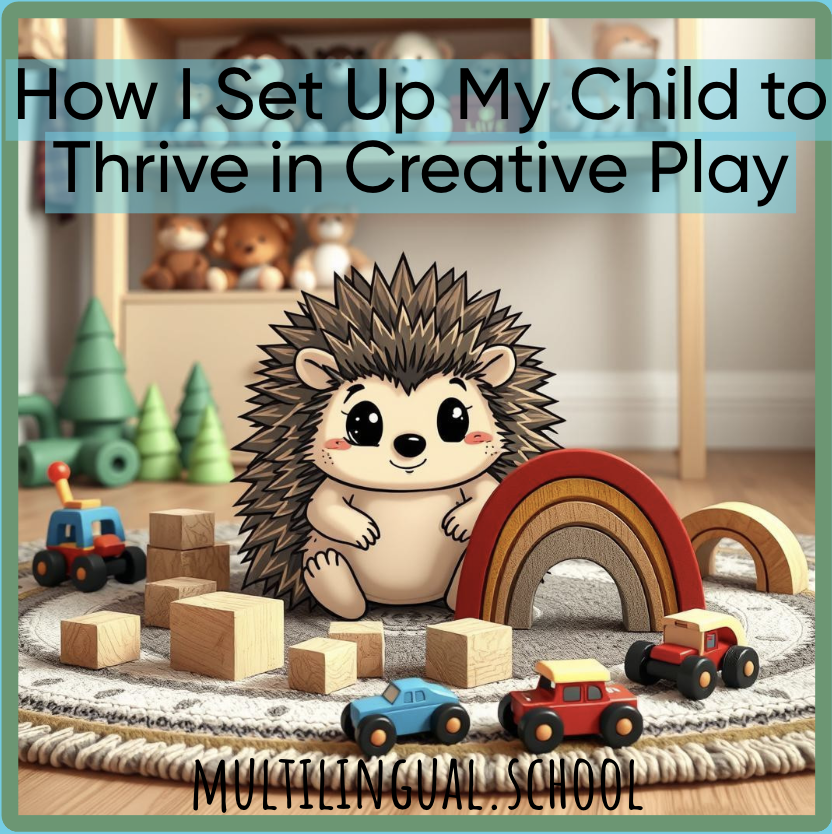
How I Set Up My Child to Thrive in Creative Play: Why Multilingual Language Development Blossoms When Children Play Openly and Creatively
When children engage in open, imaginative play, they naturally experiment with language, making it an ideal setting for multilingual development. In this post, I’ll share how I’ve set up my child to thrive in creative play and why this approach has been a game-changer for their language skills.
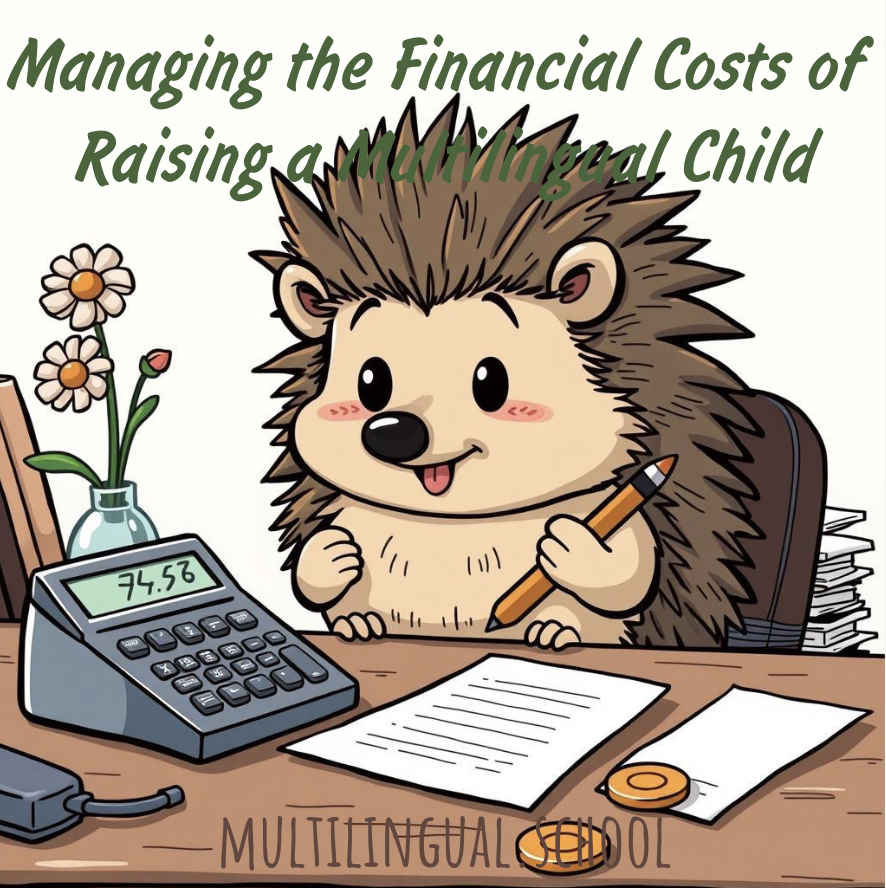
Managing the Financial Costs of Raising a Multilingual Child: A Practical Guide for Every Budget
In this post, we’ll explore how families can navigate the financial challenges of raising a multilingual child. From free resources to smart spending, we’ll cover practical strategies for different income levels, ensuring every family can create a language-rich environment without sacrificing financial stability.

When Raising a Multilingual Child Feels Like Too Much: A Parent’s Guide to Overcoming the Overwhelm
If you’ve ever felt overwhelmed by the challenge of teaching and maintaining multiple languages, you’re not alone.

Unlocking Language Potential: The Power of Multilingual Mentors for Your Child
Learning multiple languages can be a complex journey for a child - one that requires more than just textbooks or apps. Enter the multilingual mentor: a role model who inspires, guides, and brings languages to life. Finding the right mentor can transform your child’s language learning experience, making it meaningful, personal, and fun.

Your child feels embarrassed to speak your minority language? How you can help.
Supporting a child who feels self-conscious or embarrassed about speaking a non-dominant heritage language with their parents can be a delicate but rewarding process. It’s about fostering pride, reducing pressure, and making the language a natural and positive part of their life.

A Day in the Life of a Parent Raising a Multilingual Child Abroad
Ever wonder what it’s like to raise a tiny polyglot in a foreign land? Between language mix-ups and international snack time, here’s a smart (and funny) peek into a day in the life of a parent juggling multiple languages, cultures, and unexpected twists.

3 Board Games for playful language awareness
Discover how games can help your preschooler learn a minority language while having fun. Perfect for family time around the dinner table. Check out our top picks.

Overcoming uncertainty about whether your multilingual efforts will pay off long-term
Managing the uncertainty that accompanies raising a multilingual child can indeed be daunting. It is common for parents to question whether their efforts will yield the desired outcomes, especially when navigating the complexities of language acquisition. Here are several strategies to help alleviate those concerns and create a supportive environment for your child’s multilingual journey.

How to avoid setting unrealistic expectations for your multilingual child
Raising children with multiple languages abroad is a rewarding yet complex journey, and it’s easy for parents to set unrealistic expectations that can lead to frustration. To keep the process enjoyable and sustainable for both you and your child, here are practical tips to avoid those pitfalls.

Inconsistent School Curriculums Across Countries: Disrupting Language Development in Multilingual Children
Inconsistent curriculums across countries can disrupt your child’s language development, especially when you’re determined to nurture your home languages outside of school.

Adapting to Local Accents or Dialects That Differ from Your Target Language
What happens when you land in a country where one of your home languages is spoken with a local accent or dialect that feels worlds apart from what you’ve been teaching your little one?

Clear, Specific, and Practical Steps to Boost a Lagging Language without Overwhelming the Child
It’s time to discuss the options you can take to rebalance a weak language again. So, effectively, what can you do if you feel one language is losing ground?

Strategies for Integrating Home Language Learning with School Subjects
Raising a multilingual child when the school language differs from their home languages presents both challenges and opportunities. The key is to integrate home language learning with school subjects in a way that supports academic success while strengthening fluency in all languages.

